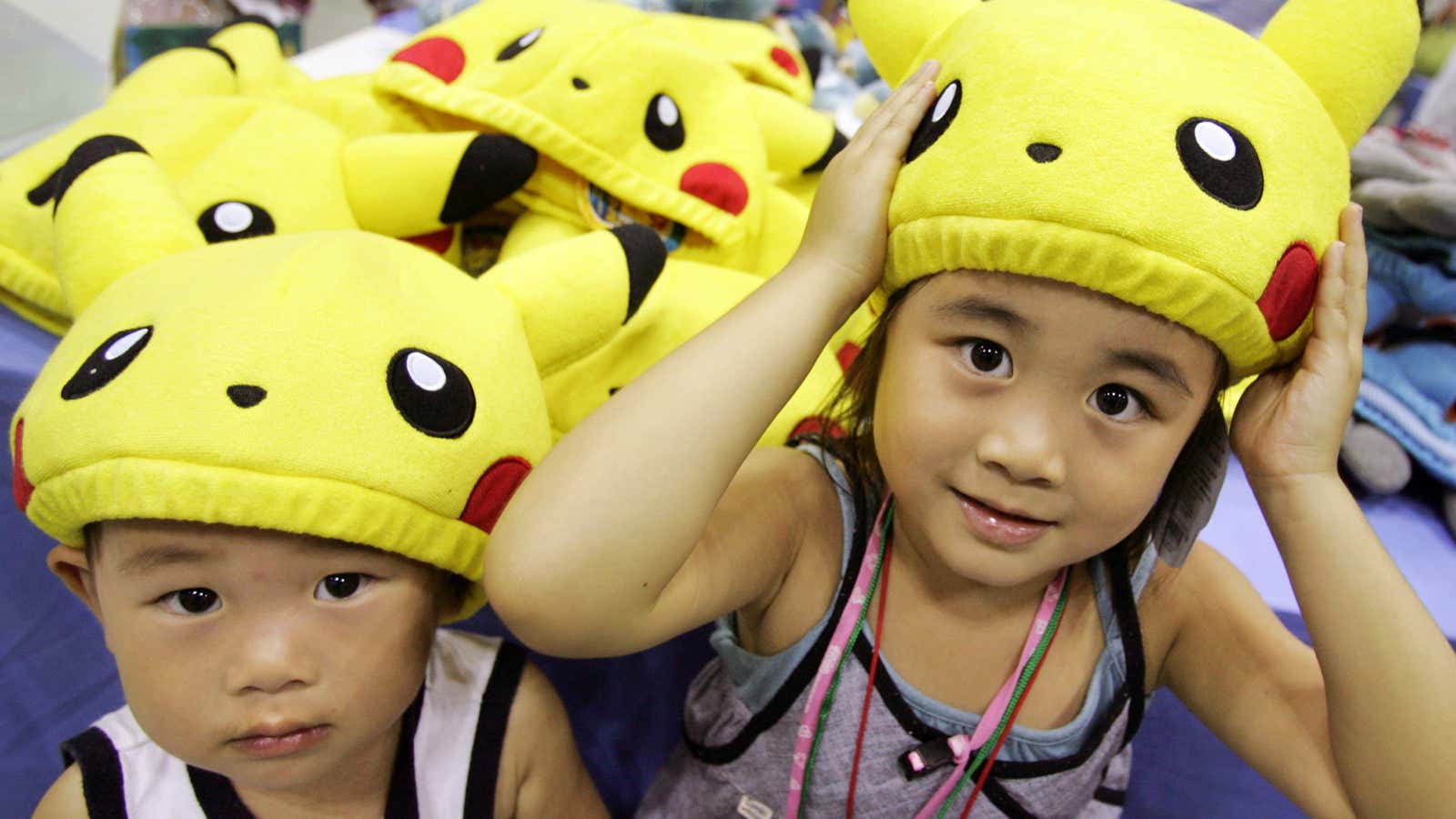When Pokémon Go landed in London last week, I took to the streets of with my colleagues to test it out. I caught Krabby and Rattata, figured out how to not get killed while finding a gym, and even learned who invented the microphone.
While my younger, hipper colleagues were deconstructing the game—and Snapchatting about it—I was deciding whether to introduce it to my kids.
Parent reports were lyrical. Families were spending time together outside, and they were being active. It was a family digital dreamscape.
But it’s not one my daughters will take part in.
Like most kids, my 5- and 7-year-old girls love all things digital and they love any kind of outdoor adventure. But once I introduce Pokémon, I can’t un-introduce it. It will become permanently lodged on our what-to-do dashboard. It will become the thing to do, when they have plenty of other things to do like riding bikes, making up games, and wrestling with each other until someone cries.
What they need to do is play.
Kids don’t do enough of that anymore, argues Peter Gray, a psychologist and professor at Boston College. Kids are stressed because schools are more academic, and they do a lot more structured activities and less unstructured play. Technology offers an addictive alternative to being bored. As a result, kids don’t get much downtime. “Children today are less free than they have ever been,” Gray told Quartz. And that lack of freedom has exacted a dramatic toll, he says:
My hypothesis is that the generational increases in externality, extrinsic goals, anxiety, and depression are all caused largely by the decline, over that same period, in opportunities for free play and the increased time and weight given to schooling.
I’m not a luddite. My kids play games and watch things on the iPad or on my phone. When there’s no school, or tennis, or piano, they play families, or “shop,” or put on a gymnastics show to pop music, which they navigate from Spotify. They make up dance routines, which we sometimes video and watch. Technology isn’t absent, but it is ancillary. And for a few more years—or moments—I’d like to keep it that way.
If my kids were older and they knew about Pokémon, or they had their own phones, I wouldn’t have this choice. Like a lot of parents, I would be rejoicing in the chance to reclaim my kids from their screens.
But they are little, and their imaginations are delightful when they have the time and space to engage them. My job is creating that time and space—without Pokémon.
